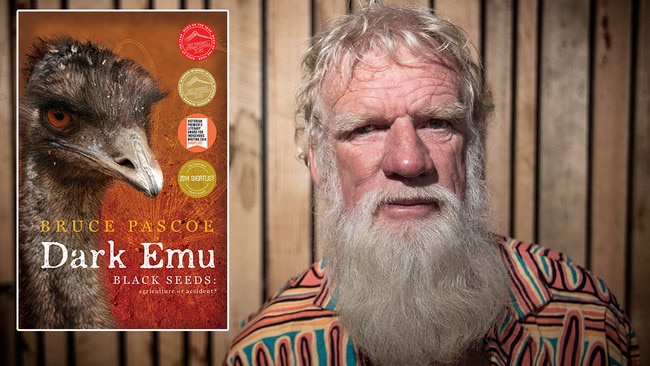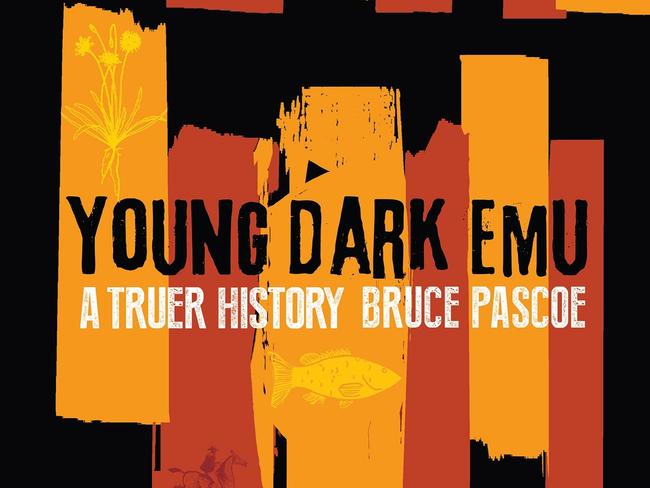
“In reality, such recognition is properly realised only through sources that are both primary and verifiable,” I added. “Even then, the mere inclusion of this material is nothing more than window dressing if the analysis and conclusions are far removed from those sources. The ‘feel-good’ factor should never be a criterion in such evaluations.”
But the feel-good factor was not just a consideration: it was the sole consideration. Journalists, politicians, and even academics effusively seized on Pascoe’s conclusions that pre-contact Indigenous Australia was not composed of hunter-gatherers, but was instead a sophisticated society that cultivated crops, constructed permanent dwellings and large towns, and designed complex dams. Why did we not know this before? Because apparently a conspiracy that started with Captain James Cook in 1770 successfully suppressed this knowledge. And the claims just got even better from there.
At the risk of repeating myself, Dark Emu by Bruce Pascoe is the most life changing book I’ve read in the last year. So many examples of jaw-dropping achievements on this continent which occurred pre 1788 and are under-lionised. Read and exult.
— Annabel Crabb (@annabelcrabb) January 26, 2019
“Well, Australian political history is 120,000 years old, minimum, and that was a society – basically egalitarian,” said Pascoe when appearing on ABC’s Q + A in March. “We have probably got the oldest village on earth in this country, which meant we invented society, and that society, for 120,000 years, was largely egalitarian.”
Host Hamish MacDonald did not query these claims.
Bookmarking this one @GreenJ ... Bruce Pascoe is an oracle and has been beating this slow and steady drum for decades.
— Wendy Harmer (@wendy_harmer) October 31, 2018
He's finally heard... and in my lifetime. https://t.co/YojZpBONJr
“On the matter of the book I say this strongly: NO ONE who has actually READ the book, can say he [Pascoe] is a fantasist,” wrote Sydney Morning Herald columnist Peter FitzSimons last year. “For when you actually read it, the penny drops … his case is unanswerable – as inconvenient as that might be for those who seek to downplay just how precious a culture was destroyed by white settlement.”
A companion version, ‘Young Dark Emu: A Truer History’, now features in school curricula. “I recommend not only that you read the book if you haven’t,” ABC radio host Patricia Karvelas told listeners in 2019, “because I promise you, it’s worth your time, but to read the book with your children too, which is what I’m doing. It is a gamechanger.”
The book uses primary extracts which it includes heavily. You can see it all in blank and white. Others saw the same extracts and missed the story. It it’s all there. #darkemuhttps://t.co/OskpM0oGYK
— Patricia Karvelas (@PatsKarvelas) November 18, 2019
Not all journalists accepted his claims without question. Sky News host and Herald-Sun columnist Andrew Bolt has vigorously disputed Pascoe’s assertions. Many of his sources, he wrote in 2019, “are misrepresented or used to wildly extrapolate. Some … are summarised incorrectly.” As is so often the case, the standard response to such protests was to dismiss them as a “culture war,” notwithstanding some reviewers and academics had similar misgivings about Pascoe’s claims.
The @ABCEducationAU team have joined forces with Bruce Pascoe to bring his brilliant book, #DarkEmu, to life. Do take a look since Bruce fills in the history we were never taught at school about the far reaching contributions Aboriginals made to the world. https://t.co/GZEywaXzKfhttps://t.co/JWMGMn7MsS
— Dr Kirstin Ferguson (@kirstinferguson) May 14, 2019
His critics can no longer be ignored or derisively dismissed. As reported by Stuart Rintoul in the Sydney Morning Herald last weekend, authors and academics Peter Sutton and Keryn Walshe have refuted Pascoe’s theories in their book ‘Farmers or Hunter-Gatherers? The Dark Emu Debate’.
Their credentials are impressive. Sutton, 75, is among Australia’s leading anthropologists. Walshe is an archaeologist with 35 years’ experience. The study of the Indigenous context in their respective fields is extensive and longstanding. And their criticism of Pascoe’s findings is damning. It is, “littered with unsourced material, is poorly researched, distorts and exaggerates many points, selectively emphasises evidence to suit those opinions, and ignores large bodies of information that do not support the author’s opinions,” they write.
To take just one example, Pascoe cites the journal of explorer Thomas Mitchell to record the latter’s surprise at coming across a deserted village during the Australian Felix expedition. “He [Mitchell] counts houses and estimates a population of 1,000,” Pascoe writes. As Sutton notes, “there is no mention of anyone counting anything.”

And what of Pascoe’s citing the observation by Granville Stapylton, who accompanied Mitchell, that the buildings “were of very large dimensions, one capable of containing at least 40 persons and of very superior construction”? As Rintoul notes, Pascoe conveniently omits Stapylton’s surmising that this was “the work of a white man” thought to be William Buckley, who lived among the Wathaurong people for many years.
These discrepancies, nor Pascoe’s many others, are not a new discovery. In addition to Bolt, the journal Quadrant has listed them, as has Peter O’Brien, the author of ‘Bitter Harvest: The Illusion of Aboriginal Agriculture in Bruce Pascoe’s Dark Emu’. A website ‘Dark Emu Exposed’ has long been dedicated to exposing Pascoe’s fallacies.
Sutton and Walshe rightly castigate journalists’ glib acceptance of Pascoe’s claims, particularly their failure to consult anthropological specialists or Indigenous people in remote communities. But what of our political representatives who, as have many commentators, do not so much subscribe to Dark Emu but accept its veracity as an act of faith?
A quick check of Hansard will confirm I am not exaggerating. Labor MP Alicia Payne: “We are waking up, with the help of thought leaders like Bruce Pascoe and his book, Dark Emu, to the sophistication of Aboriginal cultures and societies.” Thought leaders? Labor MP Susan Templeman: “He [Pascoe] demonstrated by taking apart the accounts of settlers that there was agriculture, engineering and ownership and stewardship of this land by the First Peoples.”
It was, “an amazing book,” said Labor MP and indigenous woman Linda Burney. It “turns on its head the widely held view that Aboriginal people were hunter and gatherer societies,” and presents “a truer picture of Aboriginal society and the land”.
Opposition Leader Anthony Albanese: “Look at what Bruce Pascoe has done with Dark Emu and our place in this land. In this one extraordinary book, Bruce has unearthed the knowledge that we already had in our possession but chose to bury along the way. Ignorance feeds in darkness. Bruce has simply reminded us where the light switch is. With the flick of that switch a complex mosaic of ancient nations is suddenly laid out before us in light as bright as those early European explorers first saw it and recorded it.”
Labor senator Penny Wong: “We are no longer trapped in the ignorance of our own assumptions and prejudice, premised on the underlying supremacism of the narrative that white people know best. Bruce Pascoe writes of Australia before colonisation with First Nations people engaging in complex water management and agriculture and living in sophisticated housing among villages — none of which fit the definition of a hunter-gatherer.”
Greens senator Janet Rice: “I recently read the book Dark Emu … There were really complex technologies, there were settlements, there was agriculture, and there were villages and towns of thousands of people, in some cases, which have been wiped from our history, unacknowledged, because we have a myth of our history …” Independent MP Zali Steggall: “Bruce Pascoe has demonstrated that there was once a grain belt that extended across the whole continent.”
Labor MP Tim Watts went as far to single out and shame his great-great-great grandfather John Watts for observing Indigenous Australians were a “nomad race who made no use of [the land] except for going from place to place and living only on the wild animals and the small roots of the earth and never in any way cultivating a single inch of the ground.”
“This statement of ignorance is laid bare by the prize-winning book Dark Emu, in which Bruce Pascoe carefully disproves the ignorant assumptions my ancestor had about the ‘natives’ and their agricultural primitivism,” Watts self-righteously declared, oblivious to his own gullibility. What is more, Watts’s reference to “agricultural primitivism” is itself a form of chauvinism which Sutton deplores. The absence of agricultural methods in Indigenous Australia was, he notes, “an active championing and protection of their own way of life and, when in contact with outsiders, a resistance to an alien economic pattern”.
In acknowledging this week that Pascoe had “fallen short” regarding his “intellectual rigour,” The Age nonetheless urged caution. “We hope the latest chapter in the Dark Emu debate does not reignite the culture wars,” it editorialised. This completely misses the point. For the past few years, Dark Emu has been intrinsic in a postmodernist strategy to delegitimise white settlement of Australia, and one that frequently involves vilifying those who question its claims.
According to Pascoe, he does not want Dark Emu to be his legacy. “I’m a fiction writer, a storyteller,” he told the Sydney Morning Herald in 2019. At least he and his critics agree on something.
More Coverage
Pascoe's Dark Emu is indeed a brilliant book and the evidence he mounts for his theme - that the First Nations people were a lot more established in agriculture than ever given credit for - is simply overwhelming and irrefutable. https://t.co/FHTtKvTikB
— 💉 Peter FitzSimons (@Peter_Fitz) January 2, 2020








“If scholarly authenticity in the fields of history and anthropology were determined by the number of ‘oohs’ and ‘aahs’ uttered into an ABC microphone, Dark Emu would be nothing short of magisterial.” So I wrote in 2019 regarding the adulation given to Bruce Pascoe’s best-selling book.